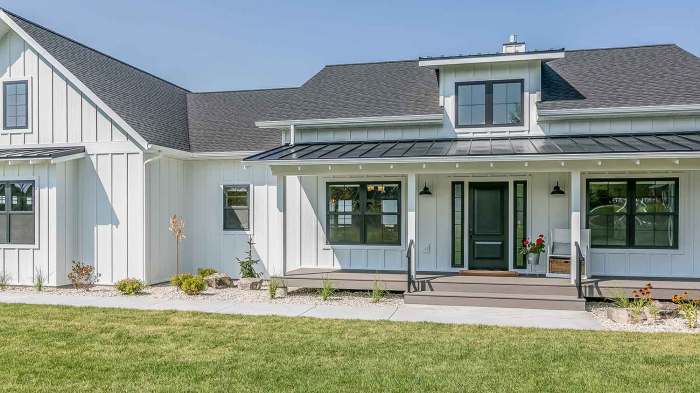The Vital Role of Insurance in Building and Construction
Exploring the significance of insurance in building and construction, this introduction sets the stage for a comprehensive discussion on how insurance plays a crucial role in mitigating risks and ensuring financial protection in construction projects.
It will delve into various types of insurance relevant to the industry, factors influencing insurance requirements, benefits for stakeholders, and more.
Importance of insurance in building and construction

Insurance plays a crucial role in mitigating risks in construction projects by providing financial protection against unforeseen events. It helps construction companies manage potential liabilities and uncertainties, ensuring the smooth progress of projects.
Examples of potential risks covered by insurance in the construction industry
- Property damage: Insurance can cover damages to buildings, equipment, or materials on construction sites due to accidents, natural disasters, or vandalism.
- Third-party injuries: In case of accidents involving third parties, such as visitors or neighboring properties, insurance can provide coverage for legal expenses and compensation.
- Worker injuries: Construction sites are prone to accidents, and insurance can cover medical expenses and lost wages for injured workers.
- Delays and disruptions: Insurance can protect against financial losses caused by project delays, material shortages, or labor disputes.
How insurance protects construction companies from financial losses
Insurance helps construction companies safeguard their financial stability by providing coverage for unexpected expenses and liabilities. It ensures that companies can fulfill their contractual obligations, pay for damages or legal claims, and recover from setbacks without facing significant financial burdens.
By transferring risks to insurance providers, construction companies can focus on their projects with peace of mind.
Types of insurance relevant to building and construction
Insurance plays a crucial role in the building and construction industry, providing protection against various risks that can arise during projects. There are different types of insurance policies tailored to meet the specific needs of construction businesses.
Builder’s Risk Insurance
Builder's Risk Insurance is designed to protect construction projects during the course of construction. It covers damage to the structure, materials, and equipment on-site. This type of insurance helps mitigate financial losses resulting from risks such as fire, vandalism, and theft.
Professional Liability Insurance
Professional Liability Insurance, also known as Errors and Omissions Insurance, is essential for construction professionals such as architects, engineers, and consultants. It provides coverage in case of negligence claims, errors, or omissions in professional services provided. This insurance protects against lawsuits and claims for damages.
General Liability Insurance
General Liability Insurance is crucial for construction businesses as it provides coverage for third-party bodily injury, property damage, and advertising injury claims. This insurance protects against lawsuits, medical expenses, and legal fees that may arise due to accidents or injuries on the construction site.
It also covers damages caused by the business operations, products, or completed projects.
Factors influencing insurance requirements in construction
When it comes to construction projects, several key factors play a crucial role in determining the insurance needs. These factors can significantly impact the type and amount of insurance required for a project.
Project Size and Scope
The size and scope of a construction project are fundamental factors that influence insurance requirements. Larger projects with higher values at stake may necessitate broader coverage to mitigate potential risks. The complexity of the project, including the number of subcontractors and the intricacy of the design, also plays a role in determining the insurance needs
Location and Regulations
The location of a construction project can have a significant impact on insurance considerations. Projects in areas prone to natural disasters or with higher crime rates may require additional coverage to protect against specific risks. Moreover, different regions have varying regulatory requirements that need to be taken into account when determining the insurance coverage for a construction project.
Project Complexity
The complexity of a construction project, including the type of construction, materials used, and technology employed, can influence the insurance requirements. More complex projects may pose higher risks, necessitating specialized insurance coverage to address potential liabilities. Understanding the intricacies of a project is essential in determining the appropriate insurance coverage to safeguard against unforeseen circumstances.
Benefits of insurance for stakeholders in construction
Insurance in the construction industry provides numerous benefits for various stakeholders involved in a project. Not only does it protect construction companies, but it also benefits subcontractors and clients by mitigating risks and ensuring project completion. Let's explore how insurance coverage enhances the overall project delivery and stakeholder relationships, along with the long-term advantages it offers to all parties involved.
Enhanced Risk Management
- Insurance coverage helps in managing and mitigating risks associated with construction projects, such as accidents, property damage, or delays.
- By transferring these risks to an insurance provider, stakeholders can focus on their roles without worrying about unforeseen circumstances affecting the project.
- Subcontractors and clients can rely on the insurance coverage of the main contractor, ensuring financial protection in case of any liabilities.
Improved Project Delivery
- Having comprehensive insurance coverage in place can speed up project delivery by providing a safety net for unexpected events.
- In the event of a claim, insurance can cover the costs, preventing delays and ensuring the project stays on track.
- Clients benefit from timely project completion, leading to enhanced satisfaction and trust in the construction team.
Long-Term Financial Security
- Insurance offers long-term financial security for all stakeholders by providing coverage for potential risks even after project completion.
- Construction companies can safeguard their reputation and finances by having insurance protection against future claims or liabilities.
- Subcontractors and clients can avoid costly legal battles or financial losses by relying on the insurance coverage of the project parties.
Epilogue

In conclusion, the importance of insurance in building and construction cannot be overstated. It serves as a safety net for all parties involved, providing peace of mind and financial security in the face of uncertainties.
FAQ Guide
What are some common risks covered by insurance in construction?
Insurance can cover risks such as property damage, bodily injury, equipment failure, and third-party claims.
How does insurance benefit subcontractors in construction projects?
Insurance protects subcontractors from liabilities and financial losses, ensuring their participation in projects without undue risk.
Is professional liability insurance the same as general liability insurance?
No, professional liability insurance covers errors and omissions specific to professional services, while general liability insurance covers third-party injuries and property damage.



